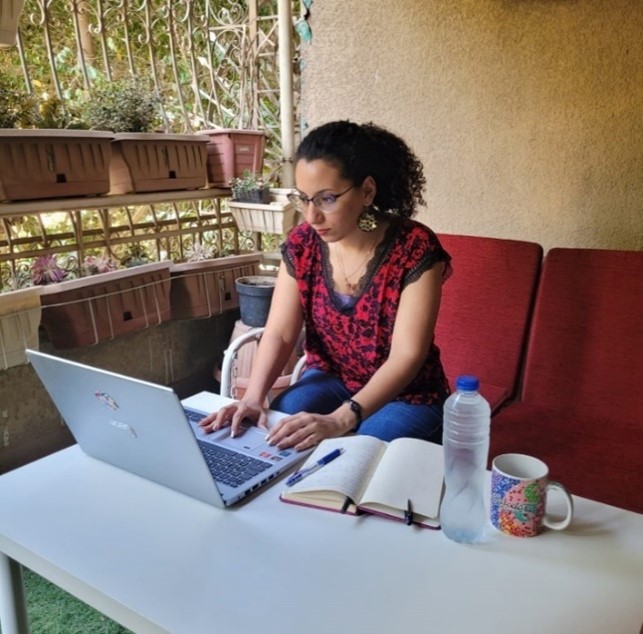In the words of Lilianne Rando: “To anyone thinking of shifting their career to pursue their passion, I tell them: ‘do it; it is definitely worth the ride”.
Date:
After graduating from the Faculty of Fine Arts, Lilianne Rando got sidetracked from her creative passion when she joined her family business. However, even after four years, Lilianne, now 28, still wants to return to the creative field. She took her first step towards this by joining UN Women’s copywriting training.

“Working with my father at our family business {import field} was an invaluable experience that I learned a lot from and one that helped me mature. Although I was successful and helped my family achieve important milestones, I longed for the stroke of my brush against the canvas.
I decided to quit and refocus my energy and time towards my passion for art, once again. At the time, I came across UN Women’s copywriting training and decided to join. Although the training was not exactly related to the path I had envisioned, I thought it would be good to try something new and I was excited to learn anything related to the creative field. It turned out to be the best decision I ever made.
I learned everything about copywriting from scratch and the training was extremely informative and engaging. We reviewed many advertisements and analysed their strengths and weaknesses, which helped us connect theoretical concepts with real-life examples. I learned the importance of brainstorming as the basis of copywriting. I understood how to differentiate between marketable and non-marketable ideas and, most importantly, I learned how to use the appropriate language for different target audiences.
The training included 19 other participants, and it was a privilege to get to know them. As many of them have experience in the field of creative industries, I gained a significant amount of knowledge, insight and advice that I am sure I could not have received anywhere else. We created a supportive community and a lasting bond of sisterhood.
In addition, after sharing some of my previous artwork with my colleagues, I was surprised by the amount of support I received. They encouraged me to also start exploring graphic design, along with copywriting skills, since I had an ‘artistic eye’, as they said. With this boost of confidence and the positive experience I had in the training, I was encouraged to expand my horizons even more and I enrolled in more online courses to master the computer programs needed for graphic design and began working on my portfolio. So now, I am not only working on my copywriting portfolio, but my graphic design portfolio as well.
I believe that this training has defined my career path, moving forward. After quitting my job, I was only thinking of returning to drawing and painting, which – to be honest – would not have helped support me financially. Now, I’m working in two directions and developing my skills in both copywriting and graphic design. Although I hadn’t considered these two paths before, I surprisingly turned out to have a passion and talent for them.
To anyone thinking of shifting their career to pursue their passion, I tell them: ‘do it; it is definitely worth the ride, and you will love every step you take’.”
***
The copywriting training that Lilianne joined falls within a wider set of trainings on creative industries delivered by Arascope for media production in cooperation with Media-Arts for Development (MADEV) including photography, directing, scriptwriting, editing and coloring.
The activity comes within the framework of the regional joint programme “Promoting Productive Employment and Decent Work for Women in Egypt, Jordan, and Palestine,” implemented by UN Women and the International Labor Organization (ILO), in partnership with the National Council for Women and the Ministry of Manpower, with the support of the Swedish International Development Agency (Sida).
Through this activity, internship opportunities were offered to 100 distinguished women trainees. In addition, teams of selected 30 trainees took part in a documentary competition, which resulted in the production of three women-led documentaries that focused on societal stories portrayed through women’s eyes. The documentaries have been submitted for participation at the upcoming edition of Aswan International Women Film Festival.